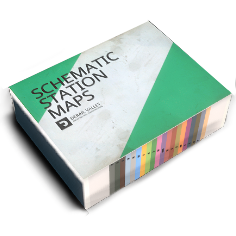Automatic Lubricator: Difference between revisions
Appearance
No edit summary |
Cleanup |
||
| Line 2: | Line 2: | ||
<translate> | <translate> | ||
<!--T:1--> | <!--T:1--> | ||
Some {{pll|Rail Vehicle Types|vehicles}} come equipped with an automatic lubricator. This is a small device | Some {{pll|Rail Vehicle Types|vehicles}} come equipped with an automatic lubricator. This is a small device with a meter on the right side, representing {{pll|Lubrication Overview|oil level}} of the drivetrain bearings that the automatic lubricator is servicing. | ||
<!--T:2--> | <!--T:2--> | ||
| Line 8: | Line 8: | ||
<!--T:3--> | <!--T:3--> | ||
If the vehicle has been parked and | If the vehicle has been parked and the bearings have run dry, it must be manually primed by turning the automatic lubricator's crank until full, before the vehicle is set in motion again. | ||
</translate> | </translate> | ||
[[Category:Lubrication|2]] | [[Category:Lubrication|2]] | ||
Revision as of 22:13, 11 March 2025
Some vehicles come equipped with an automatic lubricator. This is a small device with a meter on the right side, representing oil level of the drivetrain bearings that the automatic lubricator is servicing.
When the vehicle is in motion, it will consume that oil. However, the automatic lubricator will automatically replenish it from the onboard storage, shown on the left meter.
If the vehicle has been parked and the bearings have run dry, it must be manually primed by turning the automatic lubricator's crank until full, before the vehicle is set in motion again.
